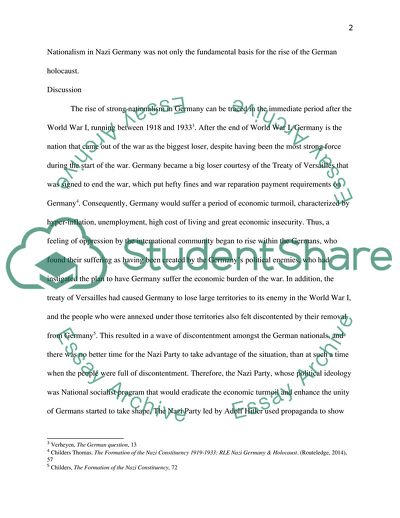Cite this document
(The Role of Nationalism in Nazi Germany Essay Example | Topics and Well Written Essays - 1500 words, n.d.)
The Role of Nationalism in Nazi Germany Essay Example | Topics and Well Written Essays - 1500 words. https://studentshare.org/history/1866138-the-role-of-nationalism-in-nazi-germany
The Role of Nationalism in Nazi Germany Essay Example | Topics and Well Written Essays - 1500 words. https://studentshare.org/history/1866138-the-role-of-nationalism-in-nazi-germany
(The Role of Nationalism in Nazi Germany Essay Example | Topics and Well Written Essays - 1500 Words)
The Role of Nationalism in Nazi Germany Essay Example | Topics and Well Written Essays - 1500 Words. https://studentshare.org/history/1866138-the-role-of-nationalism-in-nazi-germany.
The Role of Nationalism in Nazi Germany Essay Example | Topics and Well Written Essays - 1500 Words. https://studentshare.org/history/1866138-the-role-of-nationalism-in-nazi-germany.
“The Role of Nationalism in Nazi Germany Essay Example | Topics and Well Written Essays - 1500 Words”. https://studentshare.org/history/1866138-the-role-of-nationalism-in-nazi-germany.


